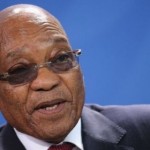In the past month, South Africa’s president, Jacob Zuma, has been at the centre of a political storm relating to his use of state funds in upgrading his personal residence, “Nkandla”, in northern KwaZulu-Natal. At the heart of the crisis is the ruling by the Constitutional Court, delivered on 31 March 2016, wherein Chief Justice Mogoeng Mogoeng noted the president was in breach of his constitutional obligations in the Nkandla matter, but the ruling was more about compliance with the report of the Office of the Public Protector.
Entitled “Secure in Comfort”, the public protector’s investigation found the president had personally gained from the security upgrades and recommended remedial action to be taken, whereby he would pay for those upgrades availed of that fell outside the gambit of that considered acceptable. In ordering the report be complied with, the court ruling upheld the credibility of Chapter 9 institutions like the Public Protector’s Office and provided clarity on their role in strengthening the principle that South Africa is a constitutional, and not a parliamentary democracy.
While the debate rages on, especially a local government election is scheduled to take place on August 3, several strategic issues emerge on the international front
In one respect, the debate points to the reality that South Africa and Brazil are are concerned with similar issues of the political legitimacy of as well as for the ruling party. Yet, when the tabled motion of impeachment against President Zuma was debated in the National Assembly, the majority of the ruling party members voted against it. Nonetheless, as the opposition and public/opposition-led criticisms continue/ intensify, there has to be deliberation on how the political situation may affect South Africa’s voice as an advocate of reform in global governance affairs; certainly in Pretoria’s role as an interlocutor for the African agenda, which is constantly referred to as a pivot of its foreign policy. To demonstrate it still has the ability to do so, South Africa will require a coherent public diplomacy strategy to counteract its current negative image.
Furthermore, South Africa partners India and Brazil in the IBSA (India-Brazil-South Africa) Trilateral premised on participatory democracy, respect for human rights, the rule of law, and the strengthening of multilateralism. It is also a BRICS partner (Brazil, Russia, India, China, South Africa).If foreign policy is an extension of domestic politics, South Africa needs to demonstrate that the BRICS and IBSA principles it advocates at the international level are as relevant for Pretoria at the national level. . This is not to suggest that the domestic political crisis will see different trajectories unfolding with regard to its BRICS/IBSA engagements, or on a broader foreign policy path, but it will have repercussions at the international level, in terms of investor confidence, credit ratings, and currency volatility. Pretoria will face constant pressure to be seen as a credible actor, especially when it comes to its African identity.
Its credibility as an international player is at stake.
Better as too studded: several/certain strategic issues emerge as to how the constitutional ruling opens up key considerations regarding South African foreign policy.
Sanusha Naidu is a senior research associate at the Institute for Global Dialogue in Pretoria, a research associate with the Department of Political Science at the University of Pretoria, and a project manager for the Africa-Emerging Powers Programme at Fahamu—the Pan-African Network for Social Justice Issues based in Nairobi.
This article was exclusively written for Gateway House: Indian Council on Global Relations. You can read more exclusive content here.
For interview requests with the author, or for permission to republish, please contact outreach@gatewayhouse.in.
© Copyright 2016 Gateway House: Indian Council on Global Relations. All rights reserved. Any unauthorized copying or reproduction is strictly prohibited


